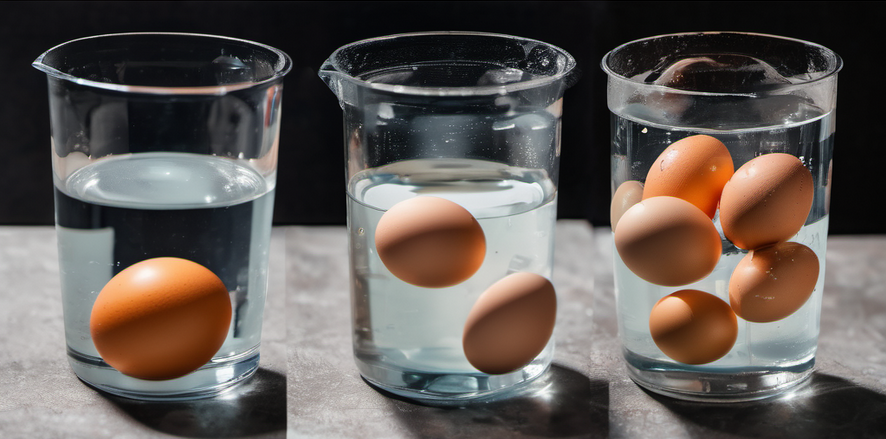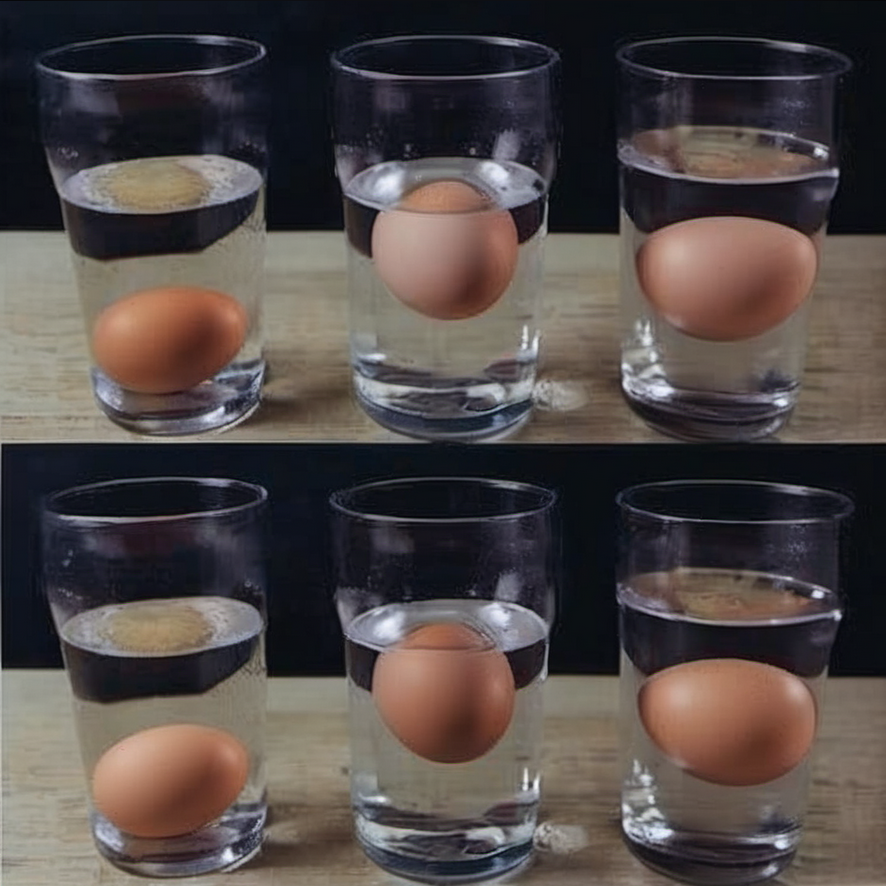WANT TO SAVE THIS RECIPE ?
Five Ways to Tell if an Egg is Fresh or Has Gone Bad
How many times have you cracked an egg into a dish only to wonder if it was still fresh? Eggs can be tricky to assess because their protective, opaque shells hide the condition of the contents inside. Fortunately, there are several simple methods to determine whether an egg is fresh. In this blog post, we’ll explore these methods and provide tips on how to prevent eggs from spoiling in the first place.
The Importance of Avoiding Food Waste:
In France alone, approximately 10 million tonnes of food are wasted annually, including a significant number of eggs. This waste largely occurs because many people cannot determine whether an egg is still good to eat after its expiration date. Understanding how to check an egg's freshness can help reduce this waste and save money.

Five Ways to Check if an Egg is Fresh:
- Check the Expiration Date:
- Every carton of eggs has a sell-by date. In France, sellers must stop selling eggs seven days before the minimum durability date (Ddm) on the package.
- If you buy eggs directly from a henhouse, they don’t come with a sell-by date. Typically, eggs are good for 28 days after being laid, and can be stored in the fridge for an additional month beyond the sell-by date as long as the shells are intact.
- Smell the Egg:
- Eggs past their expiration date often have an unpleasant smell, similar to spoiled cheese or yogurt.
- If an egg smells bad when you crack it into a bowl, it’s best to discard it. A fresh egg should not have any off-putting odor.
- Examine the Shell:
- Before cracking an egg, inspect the shell. A powdery or sticky texture could indicate mold, while a cracked or damaged shell might suggest contamination.
- After cracking, look for any unusual colors in the egg white or yolk, such as blue, pink, or green, which can indicate bacterial growth.
- Perform the Water Test:
- Place the egg in a bowl of water. Fresh eggs will sink to the bottom and lay flat. If an egg stands upright or floats, it’s likely old and should be used immediately or discarded.
- Use the Candling Method:
- This involves holding an egg up to a light source to see inside. This method can reveal the size of the air cell and the condition of the egg.
- A large air cell typically indicates an older egg, as air replaces water lost over time.
Proper Storage Tips:
- Refrigeration: Keeping eggs in the fridge helps maintain their freshness and prevent bacterial growth. Always store eggs in their original carton to protect them from absorbing strong odors from other foods.
- Avoid Washing: Don’t wash eggs until you’re ready to use them, as this can remove the protective coating and increase the risk of contamination.
Knowing how to check for egg freshness can help you avoid food waste and ensure you’re eating safe, quality eggs. Whether you use the water test, check the expiration date, or inspect the shell, these methods are simple and effective. Proper storage practices will further extend the life of your eggs, helping you enjoy them at their best.
